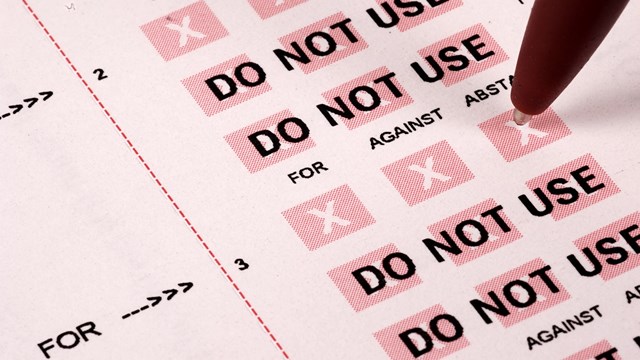The Uniform Commercial Code (UCC) is essentially an assemblage of various statutes enacted to regulate commercial transactions which - to encourage national commerce - are adopted in the same form by virtually every state. Currently, the new and updated Article 9, which governs secured transactions (usually bank loans secured by pledges of personal property), is in use in more than 40 states. Since the late 1980s, there have been technical variations in the New York version of the pre-existing Article 9 with respect to co-ops' filing requirements, duration of those filings, etc. for a variety of reasons - including encouraging banks to make subordinate loans against cooperatives.
In order to make the new statute conform to these technical requirements, lawmakers recognized that significant changes would have to be made to the New York version. Meanwhile, for a number of years there has been a great deal of uncertainty as to the right of co-op boards to enforce residents' obligation to pay maintenance against co-op shareholders without having to bring court proceedings. This has been a major problem for co-ops because their right to litigate in the event of default isn't always clear, either.
Courts have been reluctant to give shareholders the same rights as lenders who take pledges of shares under the UCC because co-ops do not generally follow the same formalities in obtaining pledges by their shareholders as do banks when they make loans. Although banks are able to take advantage of this law to force an auction of a shareholder's interest in a co-op apartment without resorting to litigation, the courts have been reluctant to allow cooperative boards this same power. In fact, the Court of Appeals has expressly declined to rule on the rights of a co-op in this situation.
The new Article 9 attempts to remedy this problem in favor of co-ops. It specifically gives most co-ops with standard forms of proprietary leases and bylaws the rights of a secured party under the statute without the co-op having to do anything. It places the co-op in a superior position to secured lenders who follow the requirements of the law. This means a co-op board does not have to go to court to declare a default and auction off the shares and proprietary lease of a delinquent shareholder.
There is another law that also has an impact here. The courts have ruled that the statutory warranty of habitability (Real Property Law 235-b) is applicable to co-ops. This means every shareholder in occupancy is entitled to "a dwelling unit fit for human habitation and shall not be subject to conditions dangerous, hazardous, or detrimental to life, health, or safety." Shareholders in occupancy can take advantage of this law to bring action against their cooperative, or to defend an eviction action.
Declaring a default and auctioning off shares of stock and a proprietary lease without litigation while a shareholder is in possession would allow a co-op- board to avoid the risk of the shareholder defending an action by alleging a breach of the warranty of habitability. In this situation, the only way the shareholder could defend based upon breach of the warranty of habitability is to start a lawsuit before the action takes place - there is no way to defend an Article 9 proceeding as if it were in a court proceeding for an eviction. This would require the shareholder's knowing enough to consult an attorney when notice of default is received - something that might not be obvious to the average shareholder.
Does this mean a board could first auction an apartment, leaving the new shareholder to attempt to evict the prior shareholder? If a defaulting shareholder refuses to vacate after an auction, serious complications could result. If the co-op were responsible for the poor condition of the apartment - because of a failure to provide adequate heat, for example - a warranty of habitability defense against the successful bidder at an auction would make little sense. Currently, in situations where co-ops have been able to auction off shares and leases, the courts have required that any shareholders in occupancy be evicted first.
This issue was not fully analyzed during the drafting of the new Article 9, largely because it was not thought appropriate to enact provisions on eviction and the warranty of habitability in a commercial statute. Essentially, the draftspersons are trusting the courts to reach a reasonable solution. Such a solution would probably be to permit co-ops to auction shares of stock and proprietary leases without having to bring an eviction proceeding only in situations where the shareholder is not in occupancy - such as shares held by a sponsor or unsold shares - or where the apartments are sublet or vacant. Otherwise, we can anticipate that the courts will find a way to force the board to bring an eviction proceeding to remove any shareholder in occupancy before the board may exercise its new rights under the UCC. In this way, courts will prevent boards of directors from negotiating resident shareholders' defenses to the eviction.







Leave a Comment